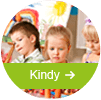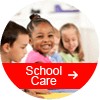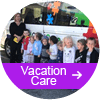Cultivating Mindfulness in Young Mind
The Benefits of Mindfulness Practices for Early Childhood Development
Early learning program for toddlers
Mindfulness in its fully developed adult form, is a type of meditation. However, for centuries it has been practised by all ages, including younger children, in the cultures of large parts of Asia.
Today, it is more visibly recognised in Western cultures and the benefits of Mindfulness practices for early childhood development are being increasingly recognised and incorporated, in subset form, into an early learning program for toddlers.
What is Mindfulness?
It can be difficult to briefly describe this practice and it must be acknowledged that there are some differences of definition depending upon the cultural background of the practitioners involved.
Essentially though it is the ability to be aware of your place in the environment that surrounds you at a given moment in time. This is sometimes described as “taking time out” or “being aware of your place in the world at a specific moment”.
That can mean different things to each individual and much will depend upon your immediate surroundings. An example might be sitting on a park bench on a nice day and sensing the things around you. That might include the sensation of the sun on your face, the sound of the wind in nearby trees or an insect buzzing, the smell of flowers in the air etc.
At the same time, you recognise and accept your thoughts and feelings. No judgment is involved, simply understanding the ‘self’ in the context of the world around you.
There are many claimed benefits of being proficient in these techniques. They include reduced stress and anxiety levels plus a greater empathy with your surroundings and those you engage with.
Cultivating Mindfulness in Young Minds
Typically, preschool-age children in an early learning program for toddlers will be too young to fully understand the philosophical and spiritual backdrop to Mindfulness in an abstract sense but they are capable of practising some of the basic techniques.
There is some evidence to suggest that this may help some children in their social and academic development in some respects that are close to the benefits for adults too (notably, the development of their empathetic skills). However, it should be acknowledged that it isn’t necessarily easy with such young children as their attention spans are typically limited and they react faster and more profoundly to external distracting stimuli than older kids and adults do.
However, there are some things that may be successful:
- try taking your child for a walk in the garden or a nearby park. Ask them to tell you how many different smells they notice. You could also encourage them to close their eyes for a few seconds to try and listen to how many different noises they can hear. Ask them to tell you what their own thoughts and feelings are as they do so (without commenting positively or negatively on what they tell you);
- at mealtimes, ask them to pause for a second and tell you what different tastes they’re experiencing and what they’re thinking about those tastes. Encourage them to think about where the food comes from, who might have grown it and where and how they were feeling at the time.
Of necessity, this brief article has barely touched the surface of Mindfulness for children. To find out more, contact a daycare centre that offers Mindfulness development as part of their recognised early learning program for toddlers













